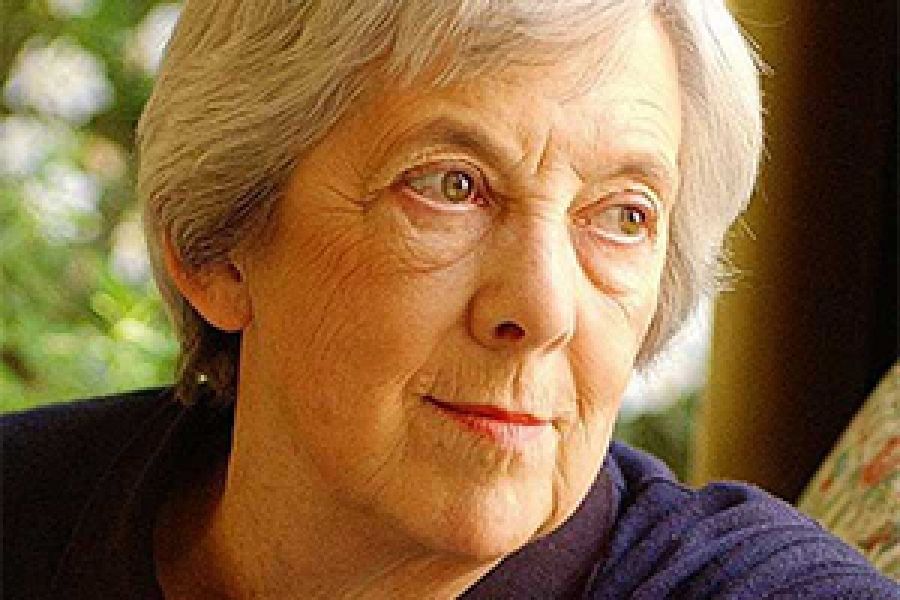
- Free Article: No
- Contents Category: Critic of the Month
- Custom Article Title: Critic of the Month with Brenda Niall
- Review Article: No
- Online Only: No
- Custom Highlight Text:
Enthusiasm, eloquence, a distinctive voice, openness to the unexpected, a well-stocked mind, wit, and humour: some or all of these gifts would make the ideal reviewer ...
Do you accept most books on offer, or do you prefer to be selective?
There’s not so much on offer in these days of shrinking review pages, so I usually accept what the editor has chosen, knowing that selection has already taken place. Sometimes I find myself reviewing something I didn’t much want; and it occurs to me that perhaps I do a better job when forced to think about something that at first sight isn’t congenial.
Do reviewers receive enough feedback from editors and/or readers?
I get some feedback from other readers, swapping opinions on books I’ve reviewed. Not much from authors, though. Now and then someone writes to me and that’s wonderful – at least when they’re happy with the review. I don’t think that, in nearly sixty years of reviewing, I have scored more than two or three letters to the editor, either to complain about me or to correct a mistake. It’s not so often that a reviewer hears an author’s pleasure or surprise at the way a work has been understood. Instead of ‘You got me wrong’, it would be good to hear: ‘That’s just what I hoped someone might find in my book.’
What do you think of negative reviews?
You need strong reasons to write a wholly negative review. There must be cases in which serious misrepresentation needs correcting. But I wouldn’t bother with the patently shoddy or the obviously feeble. Of course, a demolition job can be fun, but I’d advise sleeping on it and rereading before pressing Send. It may not be as funny as you thought at the time of writing.
One of the first reviews I ever wrote was in the form of a parody. I’d been sent a Morris West novel (The Shoes of the Fisherman, 1963), and I had amused myself by counting the number of times the characters ‘heaved’ themselves out of their chairs. It didn’t occur to me then that a writer of West’s public stature would take any notice of an unknown graduate student’s review, if in fact he even read it. But he did; he was seriously upset, and so was I when I heard how angry he was. I think I was right about West’s clichéd style, but I know that I was having fun rather than looking at the novel as a whole.
Some negative reviews are useful and illuminating; they tell the reader something about the critic as well as the book. If a literary editor had said, ‘Tone it down, Henry’, when Henry James turned in his essay on the work of the great Russian novelists, we would have lost ‘loose and baggy monsters’ and ‘fluid puddings’. These wonderfully memorable phrases show the contrasting values of Tolstoy and Dostoevsky, and Henry James, for whom economy and selection meant so much.
How do you feel about reviewing people you know?
I avoid reviewing people I know. Because I taught in the English Department at Monash University for thirty years, I am occasionally offered a book by a former student. If there’s a risk of reverting to the mind-set of Pass, Credit, Distinction, High Distinction, I drop it at once. It’s a reminder that reviewers shouldn’t be didactic, and that the review should engage the likely reader with a promise of the kind of pleasure the book offers. It isn’t an assessment.
What’s a critic’s primary responsibility?
I think the critic must put the book first. Not the author, nor the journal the review is written for, though these must also have their due. A reviewer who flattens the life out of the book fails on all counts.
Brenda Niall is a Melbourne author and former academic, best known for her award-winning biographies. These include The Boyds: A family biography (2002) and Mannix (2015). Mannix won the 2016 National Biography Award and the Australian Literature Society’s Gold Medal. Niall’s most recent book is Can You Hear the Sea?: My grandmother’s story (Text, 2017).


Comments powered by CComment